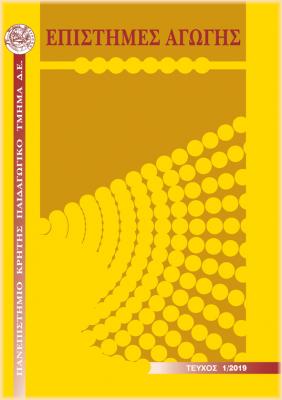Citizenship and reciprocity in modern school: a philosophical approach
DOI:
https://doi.org/10.26248/.v2019i1.434Keywords:
Citizenship, citizenship education, reciprocity, philosophy of education, curriculum, aims of educationAbstract
The Citizenship, which is widely publicized in most of the curricula, is not only a difficult to achieve purpose, but also an unclear one. As far as school is concerned, this must be taken into account when making use of pupils' experiences of autonomy and independent thinking and not disregard them as a negligible transition to adulthood. Autonomy and independence must be distinguished from individualism and competition and serve society as a whole. At the same time, the question arises whether the absolute freedom, propagated and practiced by some "experimental" schools, such as Summerhill, can create conditions for the cohabitation and functioning of the citizen in a society in which the state exercises its power of control through its mechanisms. However, dialogue can contribute to the revision of specific and individual views and can gradually help to revise relevant views and potentially change the individual's way of thinking. The school is asked to train students to think and act as autonomous citizens. Thus, the citizenship as a critical "functional principle" is not a fleeting result and it is not completed at once, which means that the content of teaching should also provide stimuli for a relevant dialogue depending on the student's stage of development. It turns out that citizenship is not a result of theoretical training, but of behavior in real life circumstances with reciprocity being the goal.


